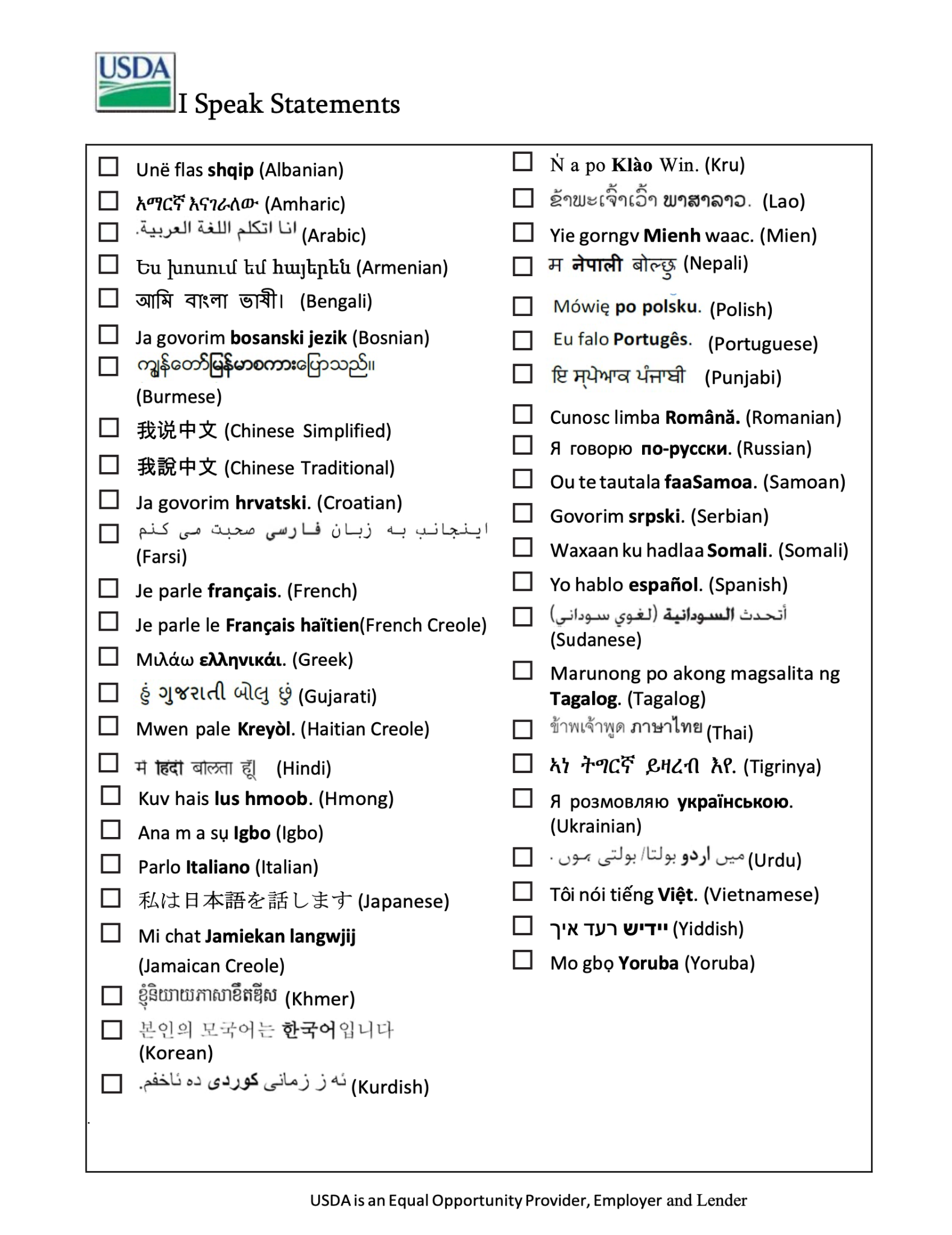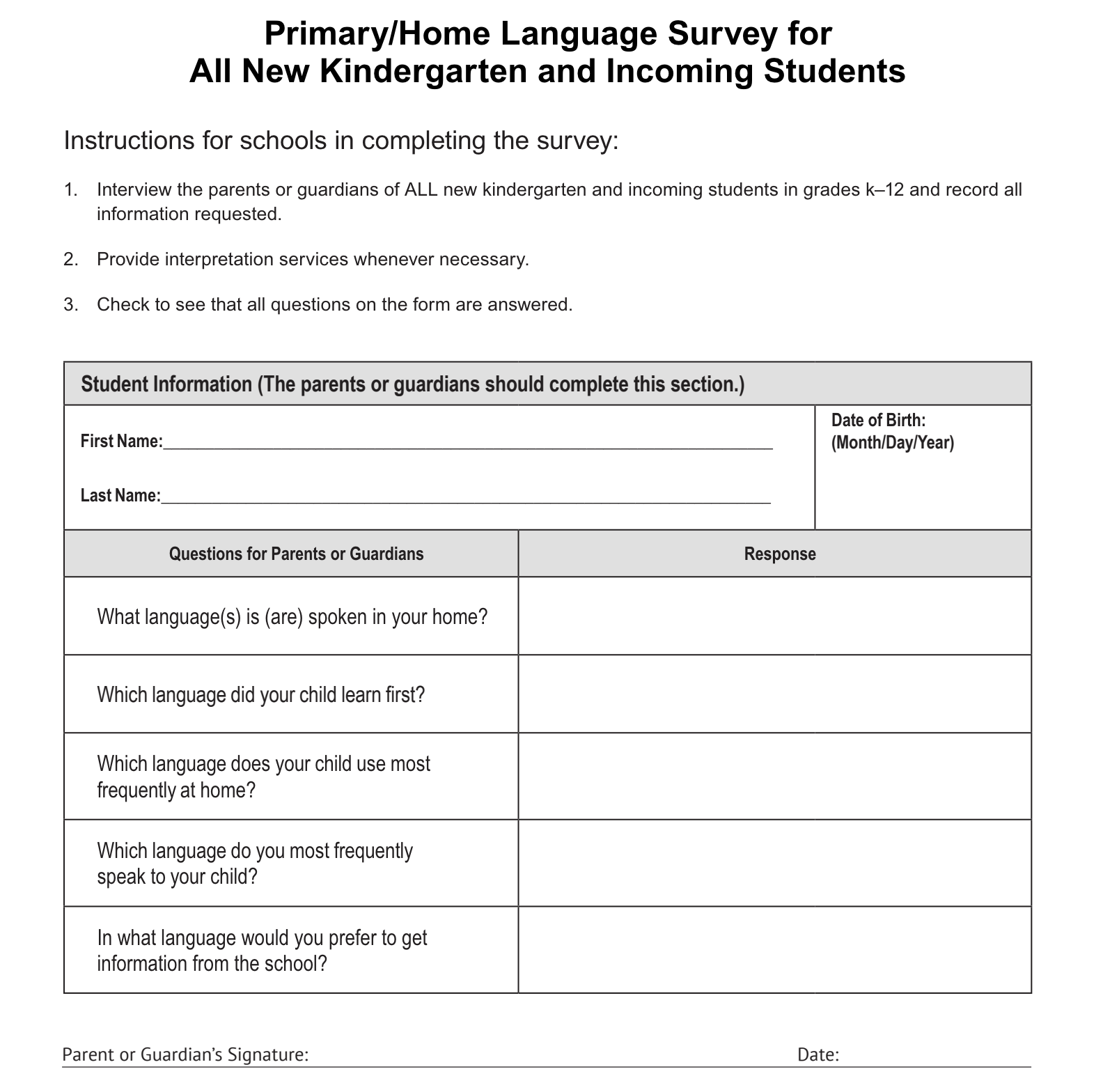Legal Responsibilities
Pause to Reflect!

When COVID-19 began, a Sudanese refugee father of three elementary-aged children tried to get information from his children’s school about distance learning. The school provided most information in English and Spanish, but he spoke Arabic and very limited English. He appreciated when his children’s teachers called, but he didn’t understand anything they were saying. Therefore, he was at a loss for how to best support his children’s learning while they were home.
- What challenges did the father face in understanding the information provided by the school?
- How could this situation affect the emotional well-being of both the father and the children?
- What strategies could the school implement to better communicate with non-English speaking parents?
- How can schools leverage community resources to bridge language gaps?
Schools and communities adhere to a set of legal responsibilities, rights, and laws as they relate to working with families with diverse linguistic backgrounds. Legal responsibilities, rights, and laws aim to promote inclusivity and engagement between families, schools, and communities. They ensure equitable access to education. This section focuses on translation, interpretation, and key legal frameworks.
What are the legal requirements related to language access?
| Act Name | Provisions of the Law |
| Title VI of the Civil Rights Act of 1964 | Title VI prohibits discrimination on the basis of race, color, or national origin in any program or activity receiving federal financial assistance. Public schools must ensure that language barriers do not impede any student from equal participation in school programming. This includes discrimination based on language. Public schools are required to translate or interpret all documents and communications with caregivers, who are not fluent in English, into a language they can understand.
Joint guidance from the U.S. Department of Justice and the U.S. Department of Education states that “schools must provide translation or interpretation from appropriate and competent individuals and may not rely on or ask students, siblings, friends, or untrained school staff to translate or interpret for parents”. |
| Individuals with Disabilities Education Act (IDEA) | IDEA mandates that caregivers of children with disabilities must be able to participate in decisions regarding their child’s education.
For caregivers with deafness or for those whose native language is not English, schools must provide interpreters for meetings (such as Individualized Education Program (IEP) meetings) to ensure that parents fully understand the proceedings and can contribute meaningfully. |
| Equal Education Opportunity Act of 1974 | The Equal Education Opportunity Act of 1974 confirms that school districts cannot discriminate against students or families through the failure to provide ways to overcome barriers that impede equal participation, including language differences. |
| Every Student Succeeds Act (ESSA) | ESSA requires that schools and districts communicate effectively with caregivers of English learners (ELs). This includes providing information about academic standards, assessments, and the child’s progress in a language that parents can understand. Interpreters must be available for parent-teacher conferences, disciplinary meetings, and other important interactions. |
| Examples of state-specific guidance that extend or enhance federal policies | The Massachusetts Department of Elementary and Secondary Education requires that public schools provide an interpreter for families whose home language is not English and who are not proficient in English. Specifically, communications with caregivers must be in both English and the primary language of the home. Interpreters must be fluent in the primary language of the home and familiar with educational procedures, programs, and services. If the parents or the student are unable to read in any language or are blind or deaf, communications required by these regulations are made orally in English and with the use of a foreign language interpreter, in Braille, in sign language, via TTY, or in writing.
The Connecticut State Board of Education requires that schools inventory the language needs of non-English speaking students, provide translation services during “critical interactions with teachers and administrators” (i.e. parent-teacher conferences) on behalf of multilingual learner students and their parents, and establish programming for bilingual education if twenty or more students speak the same dominant non-English language and attend the same school. Connecticut explicitly outlines the right to attend public school, regardless of immigration status. |
Pause to Reflect!
- What are the potential ethical and practical issues of using students or family members as translators during important meetings between caregivers, schools, and communities?
- How might professional translators better support the accuracy, confidentiality, and effectiveness of these meetings?
Colorín Colorado, an educational service of WETA, stresses that is important to note that bilingual staff and interpreters are not the same thing:
- Bilingual/multilingual staff speak multiple languages. They may also be able to write and translate in those languages, but that is not always the case. They may not have had formal training in translation or interpretation.
- Interpreters have received extensive training related to best practices for interpreting/translation, as well as training on specific legal and educational considerations around matters where they will be interpreting.
Bilingual staff members’ ability to communicate directly with families in their home language is a valuable asset for establishing partnerships with multilingual families. However, bilingual staff without formal training should not be responsible for facilitating interpreted communication between families and staff for meetings and events — only trained interpreters should be interpreting for families.
| Use Biligual Staff For: | Use Interpreters For: |
| Communicating directly with families in their native language | Facilitating communication between families and staff (“middle man”) |
| Building relationships with families | Situation that require an unbiased party |
| Presenting parent workshops in Spanish or whatever language is common among parents | Facilitating at workshops and events that are presented in English |
| Key access points, like the Front Office | Parent / Teacher conferences |
| – | Disciplinary situations |
| – | IEP meetings |
Pause to Reflect!
- What challenges and limitations might arise when bilingual staff members at an early childhood center are tasked with translating all materials into languages other than English?
- How can dedicated professional translation services improve the accuracy and quality of these translations while supporting staff in their primary roles?
Many tools exist to simplify and streamline legal frameworks and requirements. For example, the United States Department of Agriculture recommends “I Speak Statement Cards” to help schools and agencies identify the language needs of its families and participants.

The United States Department of Education requires the use of home language surveys. A home language survey is a questionnaire given to parents or guardians that helps schools and schools identify which students are potential English Learners and who will require assessment of their English language proficiency to determine whether they are eligible for language assistance services. A sample of a home language survey is provided below.

Legal frameworks exist to protect the rights associated with equal access to public education. They ensure that families can communicate effectively with school staff about their child and about the educational process. Schools should
● Determine the primary language spoken at home for each student and identify families that need translation or interpretation services.
● Use qualified interpreters who are trained in educational terminology and confidentiality. Schools should not rely on using students, siblings, other family members, or untrained staff for interpretation.
● Ensure that essential documents, such as consent forms, report cards, and notices, are translated into the primary languages of the community.
● Educate school staff on the importance of language access services and how to work effectively with interpreters.
Media Attributions
- Sudanese family © UNHCR The UN Refugee Agency is licensed under a Public Domain license
- ISpeak © USDA
- Primary/Home Language Survey is licensed under a Public Domain license

